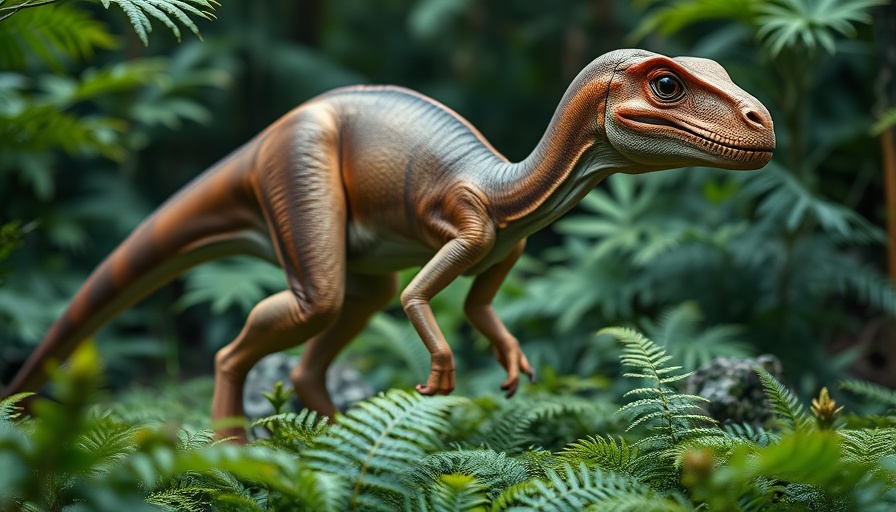
Meet the New Dinosaur: Enigmacursor mollyborthwickae
Excitement is bubbling in the paleontology community as a new species of dinosaur, the Enigmacursor mollyborthwickae, has been identified, sparking interest not only among scientists but also the general public. Discovered in the Upper Jurassic Morrison Formation of Colorado, this small, plant-eating dinosaur is approximately the size of a Labrador retriever, bringing a refreshing dimension to our understanding of the diverse species that once roamed the Earth.
A Rare Find That Tells a Story
With its tail accounting for half its length, this little dino represents one of the most complete skeletons ever found within its classification. As Professor Paul Barrett pointed out, dinosaurs of this size are quite rare, and finding a well-preserved specimen rather than just fragmented bones is rare, underscoring the significance of this discovery in understanding the Late Jurassic ecosystem.
Why This Discovery Matters to Us
This friendly dinosaur teaches us about biodiversity long gone, yet it reflects a vibrant world teeming with life, much like our own today. Understanding species such as Enigmacursor can provoke deeper thoughts on conservation and our relationship with nature. It allows us to relate to species that lived 150 million years ago in a surprisingly direct way—encouraging us to consider the impact of human activity on today’s biodiversity.
Next Steps: A Skeleton in the Museum
For those intrigued by this discovery, the dinosaur's skeleton is set to be displayed at the Natural History Museum, giving visitors a chance to step back in time and appreciate the uniqueness of this delightful new species. This engagement with the past offers a rare opportunity to learn from nature and rethink our role in preserving the planet for future generations.
The Enigmacursor mollyborthwickae embodies not only a piece of history but also serves as a reminder of the importance of biodiversity. As we marvel at such findings, we should also reflect on how they relate to our lives today—encouraging curiosity in young minds and fostering a sense of responsibility towards the environment.
 Add Row
Add Row  Add
Add 



Write A Comment